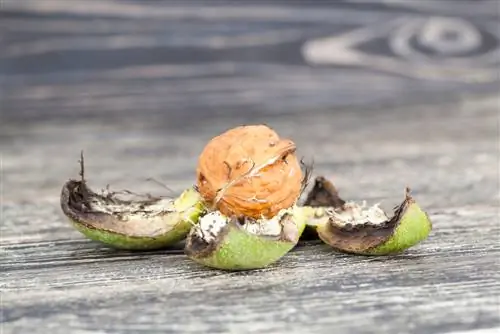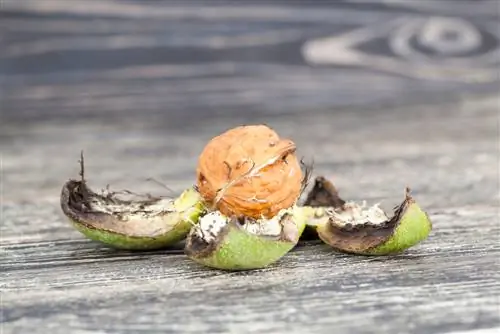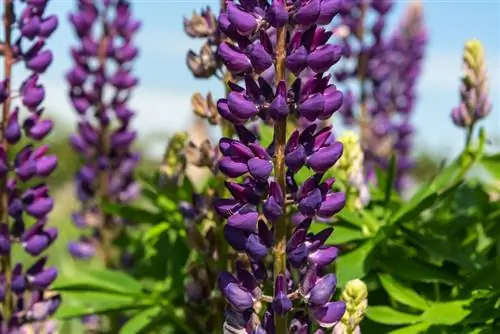- Author admin leonars@hobbygardeners.com.
- Public 2023-12-16 16:46.
- Last modified 2025-01-23 11:21.
A walnut tree in your own garden - a wonderful gift and happiness. After all, the plant looks magical, provides shade in summer and produces delicious fruits, the walnuts, in autumn. But are the tree and its nuts completely non-toxic or should you be careful? We'll clarify!

Are walnuts poisonous to humans and animals?
Are walnuts poisonous? Walnuts are generally non-toxic to humans, but people with sensitive stomachs may react sensitively to walnut leaves. Parts of the walnut tree and mold on walnuts are harmful to animals, especially horses and dogs.
In principle non-toxic to humans, but
In principle, the walnut is not poisonous to humans. However, people with sensitive stomachs may react to the leaves of the plant with nausea and vomiting, for example when drinking tea with walnut leaves.
In addition, poisoning from the green shell of the walnut fruit cannot be completely ruled out. The reason for this is the high tannic acid content, which, if sensitive, can cause stomach and intestinal problems such as diarrhea.
Important: Under no circumstances should you eat moldy walnuts - they are always harmful to your he alth!
Walnuts partly poisonous to animals
The heartwood of the walnut tree is poisonous to horses - it can lead to laminitis. In practice, however, poisoning rarely occurs. To do this, the horse would have to nibble on a felled walnut tree or a piece of furniture made of walnut.
The shells that contain walnuts can be infected by fungi (Penitrem A) - these in turn are able to produce toxins and thereby provoke vomiting, tremors and nervous spasms, especially in dogs.
Note: The nuts themselves can also be infected with fungi and cause damage.






